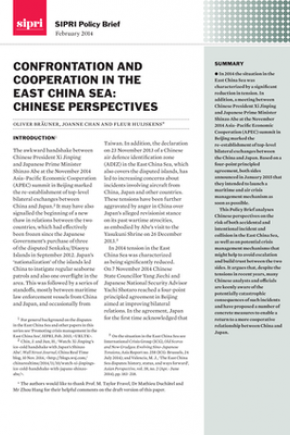The independent resource on global security
Confrontation and Cooperation in the East China Sea: Chinese Perspectives
In 2014 tension in the East China Sea has been characterized as being significantly reduced. In addition, a meeting between Chinese President Xi Jinping and Japanese Prime Minister Shinzo Abe at the November 2014 Asia–Pacific Economic Cooperation (APEC) summit in Beijing marked the re-establishment of top-level bilateral exchanges between China and Japan. Based on a four-point principled agreement, both sides announced in January 2015 that they intended to launch a maritime and air crisis management mechanism as soon as possible.
This Policy Brief analyses Chinese perspectives on the risk of both accidental and intentional incident and collision in the East China Sea and on potential crisis management mechanisms that might help to avoid escalation and build trust between the two sides. The authors argue that, despite the tensions in recent years, many Chinese analysts and officials are keenly aware of the potentially catastrophic consequences of such incidents and have proposed a number of concrete measures to enable a return to a more cooperative relationship between China and Japan.


